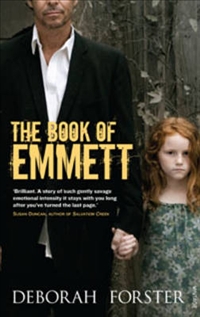Chuck Palahniuk, WW Norton, 1999.
 Review excerpts at the start of this book refer to Palahniuk in the same breath as Camus, Vonnegut, DeLillo and Pynchon, if that is any help to what you think will be inside. Survivor is structured, Tristram Shandy-like as a chapter countdown of a life during the seconds to a plane crash, except that Tristram Shandy is being born, and our survivor is the remnant of a suicide cult recording his last moments into the plane’s flight recorder as it crashes.
Review excerpts at the start of this book refer to Palahniuk in the same breath as Camus, Vonnegut, DeLillo and Pynchon, if that is any help to what you think will be inside. Survivor is structured, Tristram Shandy-like as a chapter countdown of a life during the seconds to a plane crash, except that Tristram Shandy is being born, and our survivor is the remnant of a suicide cult recording his last moments into the plane’s flight recorder as it crashes.
I wouldn’t say Palahniuk is another Fielding but he has an affinity for the lonely, salty lives at the edge of mainstream society. In Survivor the protagonist narrator is gradually revealed to us through his unique take on the world, influenced by the role the cult gave him in the “outside” world. Two of the United States’ cultural creations, the insular, non-taxpaying religious cult and the mass market collude and collide here. Both feed off vulnerability, brainwashing, hope and someone else’s money in your pocket, and lots of it.
The protagonist, whose name is gradually revealed, comes from a labouring cult and the book is peppered with the handy home hints the cult followers are trained in so they can be desirable cheap labourers in the outside world and send the money back to the cult. Potential employers of the cult followers want to know how to eat lobster, how to behave as if civilised and to avoid cleaning up their own messes. Palahniuk’s whingy-whiner hero could be any one of us with our culturally-induced problems (need more plastic surgery, need Viagra, need love, need bigger/more everything) but he has the answer for our existential angst – kill yourself. It is programmed into cult members. It was Camus, I think, who thought suicide was the one serious philosophical problem: a lack of courage in the face of the ultimate meaninglessness of everything, as only we, ourselves, can seek our own meaningfulness. And what an interesting quest that is.
Survivor is skilfully structured and reveals a compellingly bizarre world, leavened with black humour. About three quarters of the way through I thought the railing against modern society and sexual grossness grew soggy. I’m all for railing and inveighing, but Palahniuk moves at a gulping speed and it feels a little undigested. However, Palahniuk is a good enough writer to fashion sustained quality from the raw material of excess and greed, and a clever enough one to depict a convincingly a Kafkaesque world of ever-closing nightmare.
An astute social commentator, expect no mercy from Palahniuk. This is a read for those who relish their social commentary funny and sharp in a picaresque setting relentlessly careening to the edge.
Reviewed by Tania









